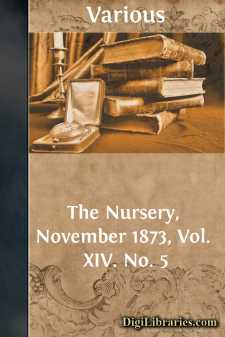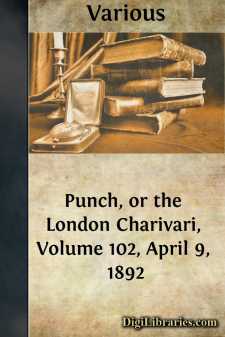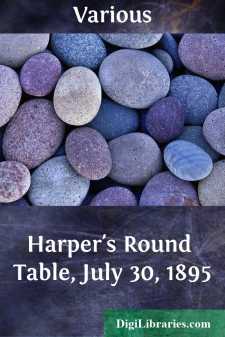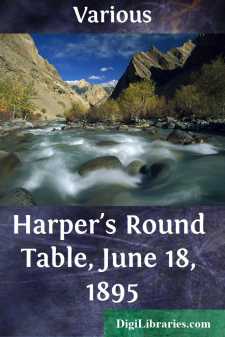Categories
- Antiques & Collectibles 13
- Architecture 36
- Art 48
- Bibles 22
- Biography & Autobiography 816
- Body, Mind & Spirit 145
- Business & Economics 28
- Children's Books 17
- Children's Fiction 14
- Computers 4
- Cooking 94
- Crafts & Hobbies 4
- Drama 346
- Education 58
- Family & Relationships 59
- Fiction 11834
- Foreign Language Study 3
- Games 19
- Gardening 17
- Health & Fitness 34
- History 1378
- House & Home 1
- Humor 147
- Juvenile Fiction 1873
- Juvenile Nonfiction 202
- Language Arts & Disciplines 89
- Law 16
- Literary Collections 686
- Literary Criticism 179
- Mathematics 13
- Medical 41
- Music 40
- Nature 179
- Non-Classifiable 1768
- Performing Arts 7
- Periodicals 1453
- Philosophy 66
- Photography 2
- Poetry 897
- Political Science 203
- Psychology 45
- Reference 154
- Religion 516
- Science 126
- Self-Help 85
- Social Science 82
- Sports & Recreation 34
- Study Aids 3
- Technology & Engineering 59
- Transportation 23
- Travel 463
- True Crime 29
Sort by:
by:
Various
THE AUNT AND THE NIECE. UNT RUTH was only nine years old, while her niece Mary was nineteen. But Ruth, being an aunt, felt she must keep up the dignity of one; and so she used to treat Mary as if Mary were a little girl.They had not seen each other for nearly a year; and, when they met, Mary, who was fond of mischief, acted as if she were really younger than Ruth, though she well knew she was nine...
more...
by:
Various
BOAT-RACE DAY. The Reader will kindly imagine that he has crossed Hammersmith Bridge, and is being carried along by a jostling stream of sightseers towards Mortlake. The banks are already occupied—although it still wants half an hour to the time fixed for the start—by a triple row of the more patient and prudent spectators. On the left of the path, various more or lessShady Charactershave...
more...
by:
Various
No. VI.—TO VANITY. DEAR VANITY, I think I can see you smirking and posturing before the abstract mirror, which is your constant companion. It pleases you, no doubt, to think that anybody should pay you the compliment of making you the object and the subject of a whole letter. Perhaps when you have read it to the end you will alter your mood, since it cannot please you to listen to the truth about...
more...
by:
Various
CHAPTER I. Every one who knows Oxford, and a good many besides, must have heard of certain periodical migrations of the younger members of that learned university into distant and retired parts of her Majesty’s dominions, which (on the “lucus a non lucendo” principle) are called and known by the name of Reading Parties. Some half-dozen undergraduates, in peril of the coming examination, form...
more...
by:
Various
The sharp crackling of the gravel, and the sound of a horse's hoofs coming up the driveway which led to the Thompsons' house, told Joe that Ned was going to be as prompt as he always was when the two boys had made any appointment, so he dropped his book, and ran to the door just as a neat little buckboard pulled up at the doorstep. "Hello, Ned!" said Joe; "just on time. I knew...
more...
by:
Various
GRAINS OF TRUTH BY BILL NYE A young friend has written to me as follows: "Could you tell me something of the location of the porcelain works in Sèvres, France, and what the process is of making those beautiful things which come from there? How is the name of the town pronounced? Can you tell me anything of the history of Mme. Pompadour? Who was the Dauphin? Did you learn anything of Louis XV...
more...
by:
Various
NEL-TE QUALIFIES AS A BRANCH PILOT. Although disappointed of their guide there was nothing for the sledge party to do but push on and trust to their own good judgment to carry them safely to the end of their journey. So as much of the moose meat as could be loaded on a sledge, or several hundred pounds in all, was prepared and frozen that evening. Both then and in the morning the dogs were given all...
more...
by:
Various
FOLK-SONG BY F. B. GUMMERE s in the case of ballads, or narrative songs, it was important to sunder not only the popular from the artistic, but also the ballad of the people from the ballad for the people; precisely so in the article of communal lyric one must distinguish songs of the folk—songs made by the folk—from those verses of the street or the music hall which are often caught up and sung by...
more...
by:
Various
THE UNION. III. On the 10th of April last, upon the recommendation of the President of the United States, Congress offered pecuniary aid to such States as would gradually abolish slavery within their limits. The colonization, from time to time, of the manumitted slaves, with their consent, by the Government, beyond our boundaries, was also contemplated as a part of the system. By the President's...
more...
by:
Various
"'TIS MERRY IN HALL.""Knock'd 'em!""What's in an 'at without an 'ed?" DISTAFFINA DE COCKAIGNE was wont to inquire, and "what's an 'all" (of Music like the London Pavilion) "without a NED" in the shape of Mr. EDWARD SWANBOROUGH, the all-knowing yet ever-green Acting Manager at this place of entertainment, who possessing the...
more...











